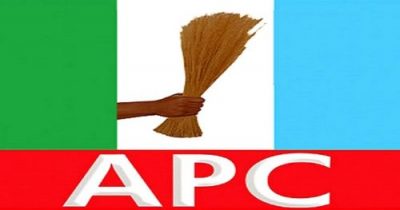ANALYSIS: APC set for another landslide victory in Lagos council elections
Four years ago, the ruling party in the state swept the entire 20 local government areas and 37 local council development areas in the state, in an election that was characterised by low voter turnout.
Ahead of Saturday’s election, the Lagos State Independent National Electoral Commission (LASIEC) announced that 14 political parties in the state would participate in the election.
The parties include the All Progressives Congress (APC), Peoples Democratic Party (PDP), Accord, Action Alliance (AA), Action Democratic Party ADP), African Action Congress (AAC), All Progressives Grand Alliance (APGA), Allied Peoples Movement (APM), and Because Of Our Tomorrow (BOOT).
The rest are Labour, National Rescue Movement, New Nigeria Peoples Party, Social Democratic Party, and Young Progressives Party.
While LASIEC gave the nod to the 14 parties, it shut the door on 10 others, namely: Alliance of Social Democrats, All Grand Alliance Party, Change Advocacy Party, Mega Party of Nigeria, Progressive People’s Alliance, Save Nigeria Congress, We The People’s Nigeria, Young Democratic Party, Advanced Congress of Democrats, and Mass Movement of Nigeria.
The parties were deregistered by the Independent National Electoral Commission (INEC) in February last year.
Like the previous elections in the state, only the PDP has enough spread across the state to match the APC.
While some of the 14 parties are unknown to Lagosians, analysts say, others do not have the resources to match the two biggest parties in mobilisation and campaigning.
Unequal strength
According to James Adeshina, the state chairman, the party’s inability to field more candidates was due to the high cost of the nominations forms fixed LASIEC.
“Our strategy is to concentrate on two local governments where we have political structures to ensure we win in this election,” said Mr Adeshina.
When LASIEC unveiled the guidelines for the election last April, it fixed N150,000, N100,000, and N75,000 as nomination fees for the chairmanship, vice-chairmanship, and councillorship positions respectively.
In its response, the Inter-Party Advisory Council (IPAC), the umbrella body of political parties in Lagos State, demanded a reduction of the fees thus: N50,000 and N20,000 for the chairmanship and councillorship aspirants, while it said the fee for the vice-chairmanship position be scrapped.
“This reduction is necessary considering the effect of COVID-19 pandemic on the nation’s economy which we are still trying to survive, and the fact that same form was sold for N50,000 during the last LG election,” the IPAC said.
LASIEC, however, stuck to its guns.
While the other political parties were threatening lawsuits over the electoral commission’s ‘outrageous’ fees, the APC unveiled its guidelines where it pegged the chairmanship nomination forms at N2 million and N1 million for male and female aspirants respectively.
For the councillorship positions, male aspirants would pay N500,000 while the females get 50 per cent off. The males are also expected to pay an extra N50,000 administration fee.
A group within the party, the Lagos4Lagos movement, kicked against the fees, describing them as “outrageous”.
“It is not good for democracy. It is suspicious,” Bode Makinde, the leader of the group, said at a press briefing in May.
‘Internal crisis’
The council primaries were, however, characterised by “cases of skirmishes,” according to the APC.
Several aspirants claimed they won at the end of the voting but their names were substituted with those favoured by the party leadership.
In Somolu for instance, some party members marched to the Governor’s Office to protest the alleged imposition of the current council chairman, Abdul Ahmed Salawu, as their candidate. According to them, four out of the five aspirants in the council stepped down for Olubowale Sosimi, the incumbent vice-chairman who is their preferred candidate.
In Amuwo Odofin, Muslim and Christian groups in the party marched to the home of the party’s national leader, Bola Tinubu, over the alleged selection of the incumbent chairman, Valentine Buraimoh, ahead of the winner of the primaries, Dipo Olorunrinu.
Mr Olorunrinu has sued the party.
In Kosofe, Olanrewaju Carew defeated Moyosore Ogunlewe with 794 votes to 757 at the primaries. But strangely, on Saturday, Mr Ogunlewe, the son of the former minister of Works, Adeseye Ogunlewe, will be on the ballot.
Protests against the alleged imposition of candidates and malpractices were also reported in Epe, Ikosi-Ejinrin, Eredo, Ijede, Surulere, Agege, Ojodu, Isolo, Ojokoro, and Apapa.
PDP too
Although former senate president, Bukola Saraki, led the party’s National Reconciliation Committee to the state, insiders say the move merely papered over the cracks.
The cracks notwithstanding, some analysts believe the PDP is the only party with a real chance of securing a few wins against the APC.
In the 2015 general election, the PDP caused upsets in both the House of Representatives and State Assembly elections. In the former, the party defeated the APC in Amuwo Odofin, Surulere 2, Ajeromi Ifelodun, Ojo, and Oshodi-Isolo; while in the latter, the PDP clinched eight seats in the 40-member assembly.
The areas won by the PDP were populated by a large number of non-indigenes of the state and they include Amuwo Odofin 1 and 2, Surulere 2, Oshodi-Isolo 1 and 2, Ajeromi Ifelodun 1 and 2, and Ojo 1.
To correct that ‘anomaly’ in the 2017 local government elections, threats of violence against the non-indigenes made a lot of them stay away from casting their ballots: the APC won inna landslide.
In the 2019 general elections, the APC also won all the elective positions in the state.
In addition to voter intimidation, there are also concerns over voter apathy during local government elections. The turnout in 2017 was so low that at about noon on election day, there were no voters at several polling stations across the state.
However, head of Saturday’s election, IPAC said they are happy with the preparations and urged LASIEC to do more on voter education to prevent apathy on election day.
“They are fully prepared for the exercise from the look of things,” said Mr Adeshina.
“They should only ensure that the votes of the electorate count.”


